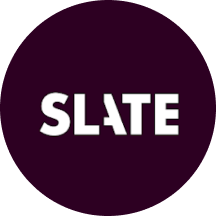
By Bo Erickson, Nolan D. McCaskill and David Morgan
WASHINGTON (Reuters) - The U.S. House of Representatives plans to vote this week on a stopgap bill to avert a government shutdown that will include $88 million to bolster security for federal officials following the assassination of activist Charlie Kirk.
Republicans plan a vote by Friday on funds to run through November 21, House Republican leaders said on Tuesday, which would give Congress another seven weeks to agree on a plan to fund the government for the fiscal year that begins next month. The federal budget runs at about $7 trillion per year, though the debates in Congress focus on just about a quarter of that sum, with the lion's share of spending on mandatory programs including Social Security and interest payments on the nation's $37.5 trillion debt.
House Speaker Mike Johnson on Tuesday argued his party, which leads the House, is proposing a "clean" continuing resolution, which would fund the government at current levels, with additional money for security.
Kirk's killing "initiated a number of uncomfortable but necessary conversations about important issues like the safety and security of our members and the responsibility of public service, and the need for political leaders to turn down the temperature and the violent rhetoric in America," Johnson said.
The bill includes $30 million in funding for security for members of Congress, $30 million for the executive branch and $28 million for members of the Supreme Court.
Democrats have also been calling for more security measures, but party leaders have not yet embraced this stopgap funding proposal, as the minority party leadership is urging bipartisan negotiations on government funding.
Bipartisan support for funding the government is more crucial in the U.S. Senate, where Republicans hold a 53-seat majority and will need the support of at least seven Democrats to win the 60 votes needed to pass funding legislation.
'REFUSING TO SIT AT THE TABLE,' SCHUMER SAYS
"They are doing exactly what Donald Trump wants," Senate Minority Leader Chuck Schumer said about Republicans' tactics, "They say they want to vote on a partisan CR as soon as possible here in the Congress, but they have refused even to sit down at the table."
Unlike the last government funding debate in March when Schumer urged a portion of Senate Democrats to vote for stopgap funding legislation, the party is pushing to use their voting leverage to address healthcare issues in the government funding negotiations.
"There is an opportunity for Republicans to reverse course and actually do something about the healthcare crisis that they have created," House Minority Leader Hakeem Jeffries said on Tuesday, referencing the tax-and-spending law passed by Republicans in July.
Healthcare-related concerns, which are also shared by some Republicans, especially as open enrollment for the Affordable Care Act insurance marketplace starts on November 1, can be addressed later in the year, Speaker Johnson argued on Tuesday.
"That is a December policy issue, not a September funding issue," the Louisiana Republican said.
(Reporting by Bo Erickson; Additional reporting by Katherine Jackson, Nolan D. McCaskill, Richard Cowan, and David Morgan; Editing by Scott Malone and Sharon Singleton)

 Reuters US Domestic
Reuters US Domestic
 KLCC
KLCC KREM 2 News
KREM 2 News WYFF Politics
WYFF Politics Reuters US Top
Reuters US Top Raw Story
Raw Story America News
America News Rolling Stone
Rolling Stone CBS Minnesota News
CBS Minnesota News Local News in California
Local News in California People Top Story
People Top Story US Magazine
US Magazine IMDb TV
IMDb TV Slate Politics
Slate Politics